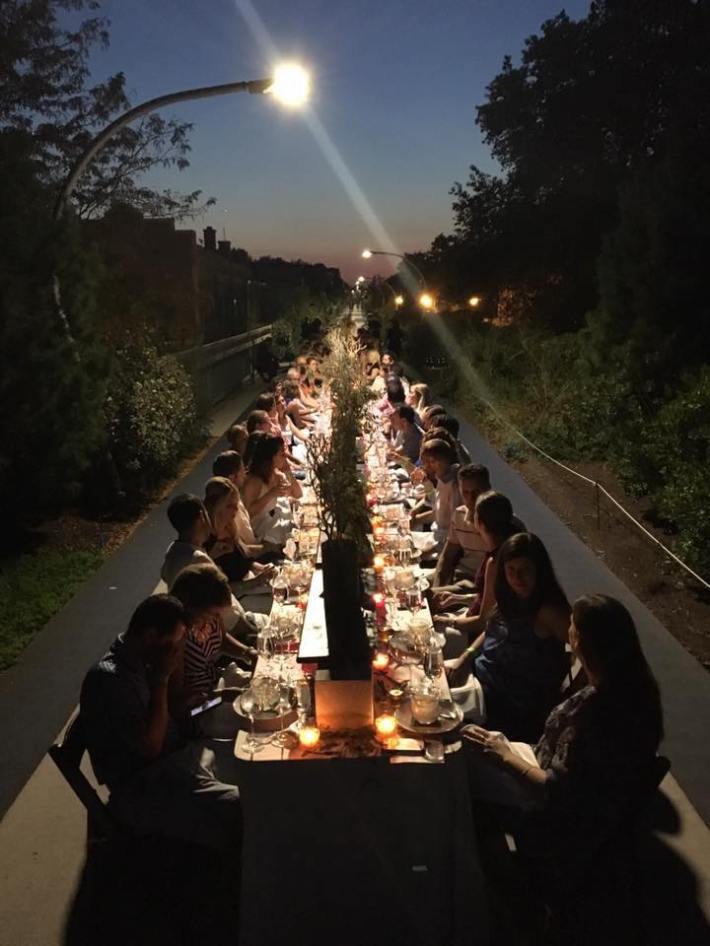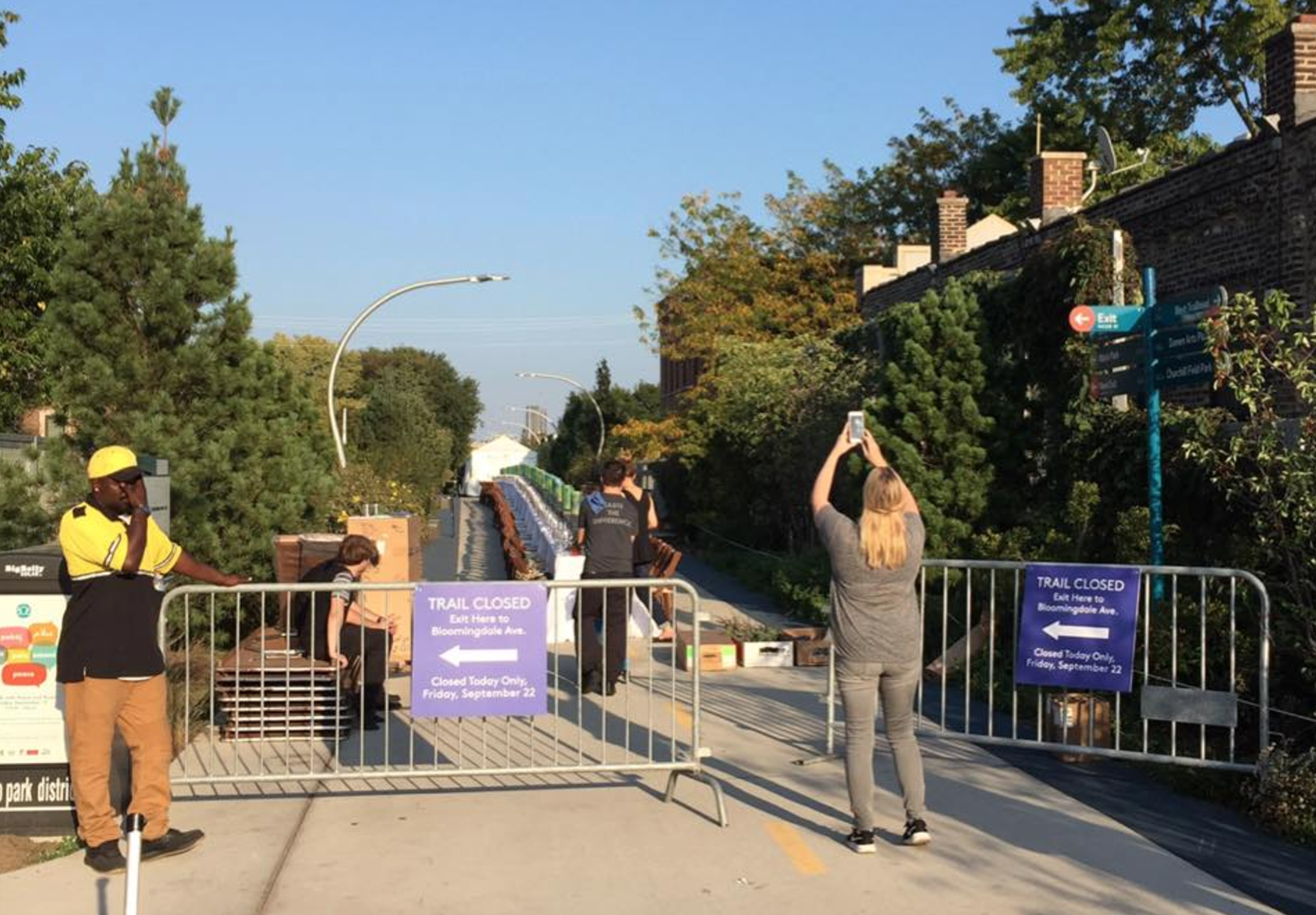Off-street trails can have many benefits for residents. They serve as car-free transportation corridors, make it easier for people to get physical activity, provide recreational opportunities for youth and families, and can promote social integration, encouraging people of different backgrounds and incomes to interact. As such, every neighborhood in Chicago should have an amenity like the Bloomingdale Trail, aka The 606, on the Near Northwest Side.
On the other hand, the Bloomingdale has raised not-unrealistic concerns about longtime residents along the corridor being priced out by rising property values, property taxes, and rents. While this part of town was already gentrifying well before the trail opened in June 2015, a recent report from DePaul's Institute for Housing Studies indicates that the greenway has accelerated that trend. The study found that property values along the western stretch of the elevated path have gone up by 48.2 percent since construction began on the greenway. To address the displacement issue, an ordinance proposed by three local Latino alderman calls for stiff fees for tear-downs and building expansions along the corridor west of Western Avenue.
Residents have also voiced concerns about trail-related displacement in Pilsen and Little Village, where the Paseo greenway is planned, and Englewood, where the Englewood Line Nature Trail is proposed. If the city is going to gain local support for trail projects in these and other gentrifying or lower-income communities, residents need some guarantees that they'll be able to stay in communities, so that they can enjoy the benefits of the trails in the future. In short, leaders need to convince people that a major purpose of new trails isn't to fuel the development machine that gentrifies neighborhoods, replacing poor and working-class Chicagoans with wealthier ones.

With that in mind, the $200-a-plate meal that shut down the east end of the trail, between Wood Street and Walsh Park, on Friday evening seems awfully tone-deaf. The event, called Farm2Table Dinner on The 606, was hosted by celebrity chef Rick Bayless, who lives next to the trail in Bucktown, as part of Chicago Gourmet Week. "Enjoy a cocktail in Chef Rick Bayless' personal urban garden before moving up to trail level where you’ll indulge in a farm to table full service dinner along The 606," the event description promised.
In fairness, the pricey repast was a benefit for the Chicago Parks Foundation, which raises money for local park improvements, and the Frontera Family Farmer Foundation, which provides independent farms with capital development grants. These are certainly worthwhile causes. And I'm sure it was a wonderful experience to enjoy a gourmet meal on a long, communal table in the middle of a beautiful trail on a lovely early-autumn night.
But the trail closure for the event, which was supposed to last from 6 p.m. Friday to 6 a.m. Saturday, but actually started at 4 p.m., according to a report from DNAinfo's Alisa Hauser, represented a minor headache for trail users. Some daily 606 commuters posted on social media about how annoying it was to be forced off the path in the late afternoon in 90-degree weather.
Worse, this kind of event makes residents question the true purpose of trails like the Bloomingdale. Look, I get it that sometimes public amenities are temporarily privatized for events that provide revenue for charities and/or the city. For example, the Lakefront Trail is often swamped with runners participating in races with registration fees. I wasn't even that horrified by the news that Daley Plaza will soon be available for wedding rentals.
But shutting down a section of a trail that runs through diverse communities for a white-tablecloth dinner for high-rollers sends a terrible message. (Granted, the closure took place in Bucktown, the fanciest of the neighborhoods the trail runs through.) It says that the authorities can, at their discretion, shut down this public amenity so that it can be used for the exclusive enjoyment of the well-heeled.
If the city is trying to reassure normal Chicagoans that first-class trails like The 606 are being built for the benefit of people who currently live in the communities they will run through, rather than to attract newer, wealthier residents, the Farm2Table Dinner was a terrible way to show it.





